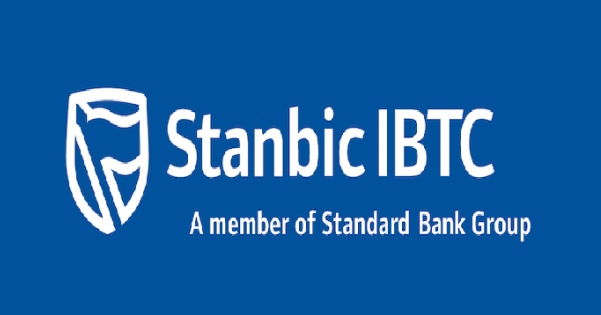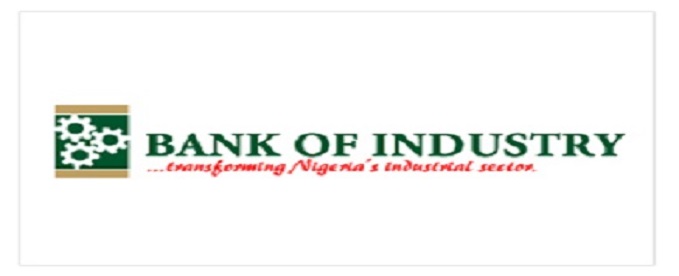E-Financial
Stanbic IBTC Bank Pledges to Improve Lending to Real Sector

Stanbic IBTC Bank Plc is set to improve on its lending to real sector of the economy, hence, grew its Loan to Deposit Ratio (LDR) by 69 per cent.

With the regulatory measures to improve lending to the real sector, the Central Bank of Nigeria (CBN) had earlier directed banks to maintain a minimum 65 per cent LDR.
Stanbic IBTC Bank stated that, “the focus and concerted efforts of its management to ensure compliance with the regulatory directive of improving lending to the real sector of the Nigerian economy have been responsible for the growth in the bank’s risk asset portfolio over the last two years.
The loan book increased by 18 per cent from full year 2019 position of N556.4 billion to N655.3 billion as at December 31, 2020.
The bank also recorded an increased loan growth by 30 per cent from December 31, 2020 position to a gross risk asset position of N854.9 billion recorded as at September 30, 2021.
Consequent upon the significant growth recorded in the bank’s risk asset growth in 2020 and year-to-date (YTD) 2021, the bank has remained compliant with the CBN’s daily minimum LDR requirement of 65 per cent with a full year 2020 daily LDR average of 65.84 per cent and 2021 YTD daily average of 69.86 per cent.
“It is important to note that the bank suffered no Cash Reserve Requirement (CRR) debits by the CBN for non-compliance with the regulatory LDR directive over the period,” it pointed out.
The bank said: “the growth in the Bank’s CRR position from N369.0 billion as at December 31, 2020 to N462.6 billion as at September 30, 2021 has been largely on account of the monetary policy actions introduced by the CBN to rein in inflationary and exchange rate pressures in the economy.
“In line with its price stability and monetary policy mandates, the CBN is saddled with the responsibility of managing surplus liquidity in the system and at various times over the period, the CBN has introduced special CRR debits to sterilize surplus market liquidity.
“These special CRR debits which are over and above the minimum regulatory cash reserving requirement of 27.5 per cent of customer deposit growth have indeed been responsible for the growth in Stanbic IBTC Bank’s total and effective CRR positions which stood at N462.6 billion and 60.09 per cent respectively as at September 30, 2021.”
The bank added that, “notwithstanding the financial constraints arising from the sterilised liquidity from the CBN, we remain very liquid and adequately capitalized with liquidity ratio and capital adequacy ratio standing at 96.2 per cent and 15.7 per cent respectively as at September 30, 2021 and above the regulatory minimum of 30 per cent for liquidity ratio and eight per cent for capital adequacy ratio.”
E-Financial
Nigeria Still Open Crypto Business despite $80Bn Lawsuit against Binance – FG

Federal government is still open to crypto businesses operating in the country despite the ongoing lawsuit against Binance, crypto exchange and the high-profile detention of Tigran Gambaryan, Binance executive.

Mohammed Idris, minister of Information, said Friday, that the lawsuit was part of the government’s effort to strengthen regulations, not to target specific companies.
“This is part of the effort to strengthen our laws, not to cripple anybody. We are ensuring that no one comes and operates without regulation,” Idris told the outlet.
Nigeria filed an $81.5 billion lawsuit against Binance in February, claiming the exchange crashed Nigeria’s local currency, the naira, and said that Binance owed $2 billion in back taxes as the Nigerian government continues to grapple with sensible crypto policy.
“We are ensuring that no one comes and operates without regulation,” Idris said, noting that other crypto companies in Nigeria continue to operate without facing legal challenges.
“There are other companies operating in the crypto sector in Nigeria, you don’t see them [facing charges],” he added.
Idris also highlighted concerns over the potential misuse of cryptocurrency for illicit activities, including terrorism financing, money laundering, and tax evasion.
He pointed out that the issue of illicit financial flows is a global concern, stressing the importance of international cooperation to ensure that transactions in the crypto space align with financial regulations.
“It is not just Nigeria. Internationally it’s also important to address illicit financial flows. You can’t have a huge amount of transactions that do not meet the operations of financial dealers,” Idris said.
E-Financial
FIRS Partners Flutterwave for Digital Payment Collection

Flutterwave, Africa’s leading payments technology company, is now enabling digital tax collections for the Federal Inland Revenue Service (FIRS), making it one of the few fintechs supporting the government in modernizing tax payments.

L-R: Mr Gbenga Badejo; Mrs. Olufunmilayo Olaniyi, Senior Vice President, Business Development, Flutterwave; Dr. Zacch Adedeji, Chairman, FIRS; Mr. Olugbenga ‘GB’ Agboola, Founder and CEO, Flutterwave and Mr Oluwabankole Falade, Chief Legal, Regulatory Affairs & Public Policy Officer.
This development allows the FIRS to leverage Flutterwave’s seamless and secure payment infrastructure to collect taxes, levies, and other payments from businesses and individuals across Nigeria.
Flutterwave’s payment technology simplifies tax payments for individuals, Small and Medium Enterprises (SMEs), and large corporations, ensuring a fast, transparent, and accessible tax payment experience.
By integrating with the FIRS, Flutterwave provides diverse digital payment options, real-time reporting and tracking, offline tax payment capabilities, and a secure payment system for Nigerians both at home and in the diaspora.
Olugbenga ‘GB’ Agboola, CEO of Flutterwave, stated: “At Flutterwave, we are committed to leveraging technology to drive efficiency and economic growth. By making tax payments easier and more transparent, we are helping to digitize government collections and support national development which is in line with our mission.”
This integration also brings key advantages, including real-time reporting and tracking of payments, diverse digital and mobile payment options, offline tax payment capabilities, enhanced transparency for both taxpayers and the FIRS, and providing Nigerians in the diaspora an avenue to seamlessly pay their taxes.
These advancements align with the commitment of the Federal Inland Revenue Service to modernize government collections and improving user experience.
Olufunmilayo Olaniyi, Senior Vice President, Business Development at Flutterwave, emphasized the company’s dedication to serving Nigerians: “Working with the public sector is pivotal to shaping the future of digital payments in Nigeria. This underscores our commitment to delivering solutions that serve Nigerians better, foster trust, and drive impactful innovation through strategic collaboration.”
With its proven track record across Africa, Flutterwave continues to play a key role in public sector digitization efforts in Nigeria.
In 2024, Flutterwave also partnered with the Economic and Financial Crimes Commission (EFCC) to establish a cybercrime research center, reinforcing its dedication to financial security and innovation.
As one of the primary fintechs facilitating government tax collections, Flutterwave remains at the forefront of financial technology solutions that enhance business operations and enable growth across Nigeria and beyond.
E-Financial
BOI Launches N10Bn GLOW Fund for Female Entrepreneurs

Bank of Industry (BOI) has launched a special intervention programme, Project Guaranteed Loans for Women (GLOW), valued at ₦10 billion to support female entrepreneurs across the country.

The initiative, launched in collaboration with the Women Chamber of Commerce, Industry, Mines, and Agriculture (WCCIMA), seeks to bridge the financial inclusion gap for women-led businesses.
Dr. Olasupo Olusi, managing director, BoI, said at the launch in Lagos, yesterday, the Nigeria leads the world in women’s entrepreneurial activity, with 23 million female entrepreneurs accounting for 41 per cent of the country’s micro-businesses.
Olusi decried that access to finance remained a major challenge for women looking to scale their businesses.
He, however, noted that BOI was committed to supporting female entrepreneurs with strategic funding initiatives designed to drive economic growth and innovation.
According to him, the bank’s 2025-2027 strategy prioritises gender-focused financial inclusion, targeting critical financing gaps and exploring actionable solutions for female-led businesses.
“Women entrepreneurs drive innovation, create jobs, and strengthen communities. However, financing remains one of their biggest challenges.
“Our goal today is to listen, simplify financing processes, and build a strong network that fosters sustainable growth,” Olusi stated.
He also reaffirmed BOI’s commitment to providing financial solutions for women-led businesses in partnership with the Women Chamber of Commerce, Industry, Mines, and Agriculture (WCCIMA).
Olusi revealed that the ₦10 billion GLOW Fund was established in collaboration with WCCIMA to enhance access to capital for female entrepreneurs.
Additionally, he outlined other BOI financial interventions, including: the BOI Impact Fund, $2 million investment in Aruwa Capital, a female-led investment firm and $50 million partial risk guarantee partnership with the African Guarantee Fund
Dr Weyinmi Eribo, director general, WCCIMA, emphasised the need for sector-specific financing tailored to women-led businesses.
She pointed out that while women-owned businesses were among the fastest-growing in Nigeria, the financial sector had yet to fully recognise them as a critical market segment.
Eribo noted that the financing gap for women-owned businesses exceeded $42 billion, describing this as a missed opportunity for national economic growth, job creation, and poverty reduction.
She warned that without intentional, tailored financing, women-led businesses would struggle to scale and compete effectively.
“Women entrepreneurs account for over 40 per cent of Nigeria’s small and medium-sized enterprises (SMEs), yet many remain excluded from mainstream financing due to systemic barriers,” she stated.
Eribo commended BOI for launching the GLOW Fund and acknowledged the contributions of the bank’s gender desk team.
She pledged that WCCIMA, in partnership with BOI, would ensure that these funding initiatives translated into measurable impacts for female entrepreneurs.

 Broadcasting3 days ago
Broadcasting3 days agoPublic Outrage, Legal Threats as Abuja Council Demands N500, 000 as TV Levy

 E-Financial3 days ago
E-Financial3 days agoFIRS Partners Flutterwave for Digital Payment Collection

 General News2 days ago
General News2 days agoNigeria, Kenya among Nations Running out of HIV Drugs – WHO

 News2 days ago
News2 days agoNAFDAC Destroys over N1 Trillion Fake Drugs in Anambra

 Telecom3 days ago
Telecom3 days agoNigeria Charts New Course to Bridge Gender Digital Divide at UN’s CSW69

 Telecom2 days ago
Telecom2 days agoTikTok and Truecaller Face NDPC Investigation Amid Data Protection Concerns

 Telecom2 days ago
Telecom2 days ago9mobile Denies Shutdown Rumours, Promises Improved Services

 General News3 days ago
General News3 days agoNIN Enrolment Hits 117.3m – NIMC

























